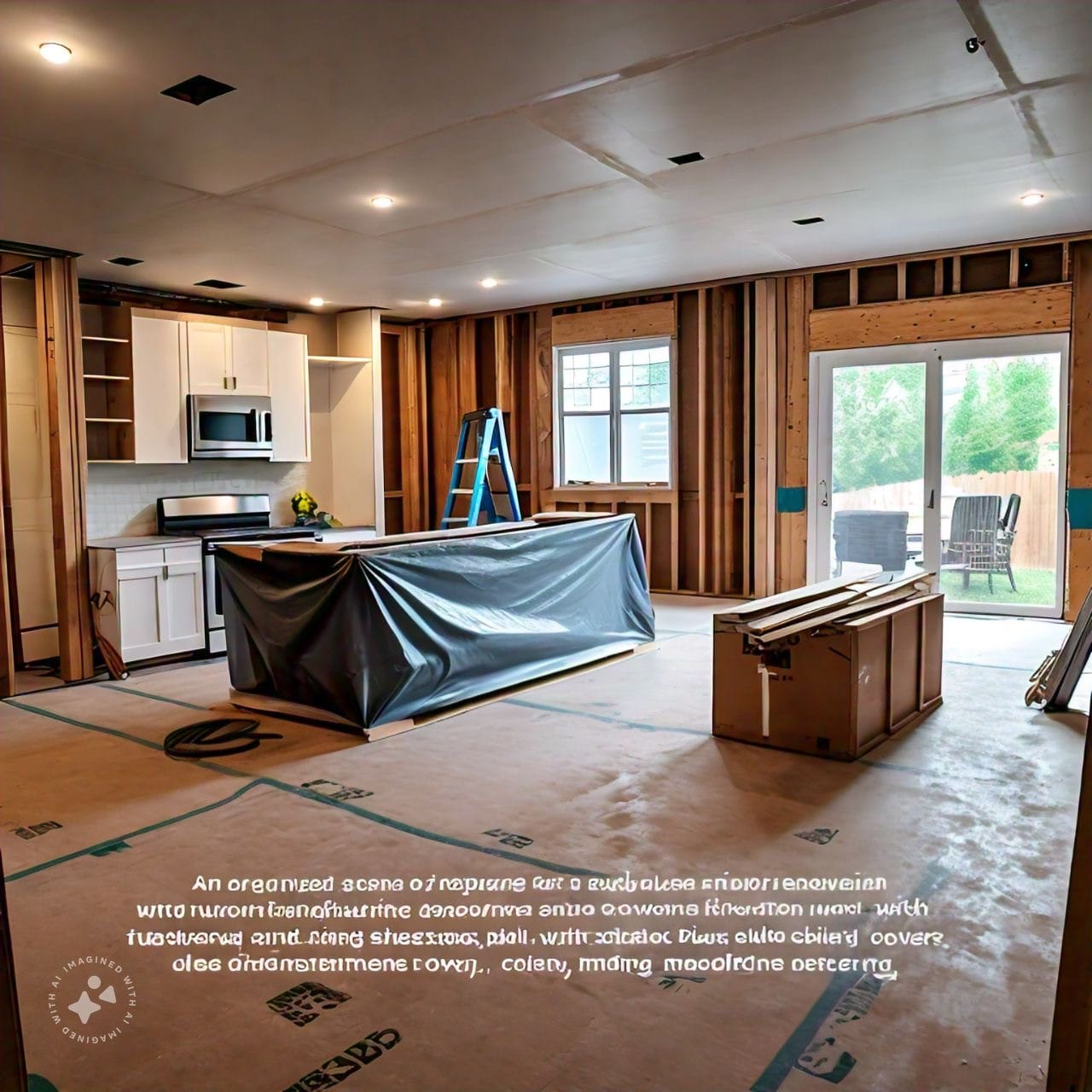Embarking on a major home renovation is an exciting opportunity to transform your living space and improve its functionality, comfort, and value. However, the process can be complex, and without proper preparation, it can lead to unnecessary stress and disruptions. Preparing your home for a major renovation ensures the project runs smoothly, stays on schedule, and minimizes inconvenience for remodelers. We will explore the key steps homeowners should take to prepare their homes before starting a major renovation, helping to create a more efficient and enjoyable experience.
Steps to take before a major renovation
- Clear Out the Renovation Area
The first and most important step in preparing your home for a major renovation is clearing out the area affected by the work. Renovations often involve demolition, construction, and using heavy tools and materials, which can damage furniture, decorations, and personal belongings if they are not removed beforehand. Start by removing any furniture, electronics, and valuable items from the renovation area to protect them from dust, debris, and potential damage during the project.
In addition to moving larger items, you’ll also want to remove smaller objects, such as picture frames, books, and décor, that could get in the way of the renovation crew. Suppose your renovation involves multiple rooms or large sections of the house. In that case, you may need to temporarily store these items in a different part of the home or rent a storage unit for the project’s duration. Taking the time to clear out the renovation space will protect your belongings and make it easier for contractors to work efficiently.
- Create a Temporary Living Space
Depending on the scope of your renovation, certain parts of your home may be off-limits for an extended period. For example, if you’re renovating the kitchen, you may not have access to your cooking appliances or sink for several weeks. Similarly, if you’re remodeling bathrooms, you’ll need to plan alternative arrangements for personal hygiene. To minimize disruptions, it is important to create a temporary living space that allows you to continue your daily activities as comfortably as possible.
For kitchen renovations, consider setting up a temporary cooking area in another room, such as the dining room or basement. A microwave, toaster oven, and mini-fridge can provide basic cooking and storage capabilities until the kitchen is complete. Try to schedule the work in stages for bathroom renovations so you always have at least one functional bathroom available. Alternatively, consider renting a portable bathroom if the renovation will affect all bathrooms in your home. Planning and creating a temporary living space allows you to maintain some sense of normalcy during the renovation process.
- Plan for Dust and Debris Containment
Renovations, particularly those involving demolition or drywall work, can generate significant amounts of dust and debris. This dust can spread throughout the house without proper precautions, affecting air quality and making the cleanup process more difficult. To prevent dust from spreading to other parts of the home, it’s important to plan for containment measures before the renovation begins. HVAC systems can also spread dust if not protected, so sealing off vents in the renovation area is an important step.
One effective method is to use plastic sheeting or temporary walls to isolate the renovation zone from the rest of the house. This will help contain the dust and keep it confined to the work area. Additionally, covering floors and doorways with protective materials can help reduce the amount of debris that travels through the home. Ask the contractors to use air scrubbers or fans with HEPA filters to capture dust particles and improve air quality if possible. Planning for dust containment can protect your home’s cleanliness and minimize the post-renovation cleanup.
- Communicate with Neighbors
Major home renovations can create noise, dust, and disruptions that affect your household and your neighbors. Out of courtesy, it’s a good idea to inform your neighbors about your renovation plans in advance. Let them know the project’s scope, how long it’s expected to take, and any potential impacts on noise levels or parking. Keeping your neighbors in the loop can prevent misunderstandings and reduce the likelihood of complaints.
In some cases, renovations may require shared spaces such as driveways, alleys, or sidewalks. If this is the case, it’s especially important to communicate with your neighbors and ensure that their access to these areas is not unduly restricted. Open communication helps maintain good relationships with neighbors during the renovation process and promptly addresses any concerns.
- Prepare for Delays and Budget Changes
Even with the most meticulous planning, home renovations can be unpredictable, and unexpected challenges may arise. From supply chain delays to unforeseen structural issues, many factors can impact the timeline and budget of a renovation project. To avoid frustration, it’s important to prepare for possible delays and budget adjustments.
One way to prepare is by building a contingency fund into your renovation budget. This allows you to cover unexpected costs without derailing the entire project. A contingency fund of 10-15% of the total project cost is often recommended. Additionally, try to remain flexible with your timeline. While setting a target completion date is important, be prepared for potential delays due to factors beyond your control, such as weather or shipping delays for materials. Setting realistic expectations and preparing for the unexpected can reduce stress and ensure the project continues smoothly.
- Secure Permits and Approvals
Many major home renovations require permits or approvals from local authorities before the work can begin. These permits ensure the renovation complies with local building codes and safety regulations. Common renovations requiring permits include structural changes, electrical work, plumbing, and adding square footage to the home. Failing to obtain the necessary permits can result in fines, delays, or even the need to undo completed work.
Before starting the renovation, work with your contractor or project manager to identify which permits are required for your project. In many cases, the contractor will handle the permit application process on your behalf, but it’s important to verify that all necessary approvals are in place before the work begins. By securing permits, you can avoid costly legal issues and ensure that your renovation complies with local regulations.
Preparing your home for a major renovation is key to ensuring the project’s success. From clearing out the renovation area to planning for temporary living spaces and securing permits, many important factors must be considered before the work begins. We will explore how these preparatory steps can minimize disruptions, protect your belongings, and help the renovation run more smoothly. Being proactive and well-prepared can turn your home renovation project into a rewarding and enjoyable experience.

















